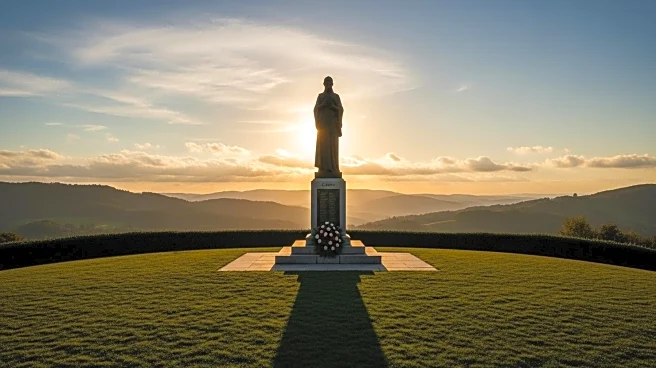What's Happening?
China is commemorating the 80th anniversary of World War II with a large military parade, drawing leaders from over 20 countries, including Russia's Vladimir Putin and North Korea's Kim Jong Un. The event highlights China's role in the war and its impact on national identity. Despite the Communist Party's emphasis on its contributions, historians note that the Nationalist Party played a significant role in resisting Japanese occupation. The parade serves as a platform for China to assert its historical narrative and influence in the contemporary world order.
Why It's Important?
The commemoration underscores the ongoing battle over the legacy of World War II in China, affecting national identity and international relations. China's portrayal of its role in the war shapes its domestic legitimacy and global standing. The event also highlights the geopolitical dynamics in East Asia, with China, Russia, and North Korea presenting a united front against Western influence. The differing narratives between China and Taiwan further complicate regional tensions, impacting diplomatic strategies and alliances.
What's Next?
The parade may lead to increased diplomatic engagements among participating countries, potentially influencing regional security and international relations. Taiwan's response to China's narrative could affect cross-strait relations and its ties with Western allies. Observers will be watching for any shifts in policy or new agreements that could impact the geopolitical landscape.
Beyond the Headlines
The commemoration highlights the complex historical narratives surrounding World War II, particularly the roles of the Nationalist and Communist parties in China. The event serves as a reminder of the ongoing battle over historical legacy and national identity, with implications for domestic and international politics. Taiwan's differing narrative challenges China's portrayal, affecting regional dynamics and diplomatic strategies.










